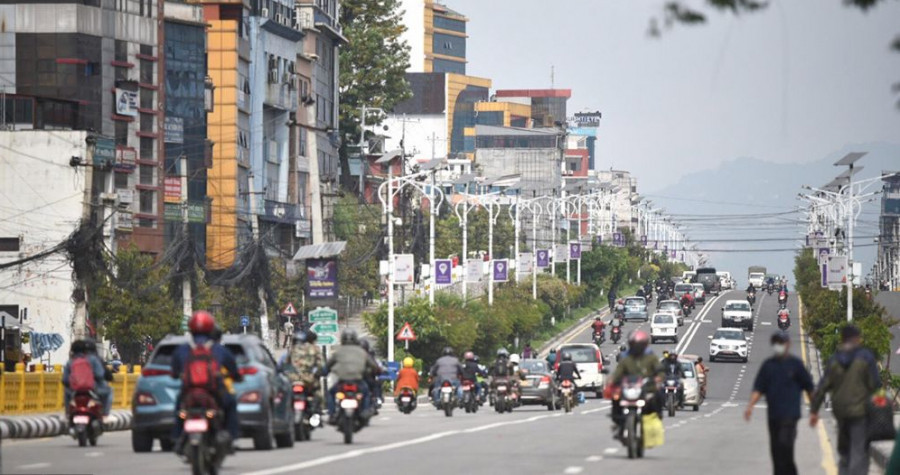National
People without vehicles are having difficulty commuting to work as public transport service remains shut
Transport department says health and safety guidelines are being prepared for passenger carrying vehicles in case the government decides to resume public transport services.
Shuvam Dhungana
People who don’t own vehicles have been facing difficulty getting to work on time, as the government has lifted the lockdown restrictions only for private vehicles.
The lockdown restrictions were eased on June 10 for offices, factories and some businesses. The government had also decided to relax the restrictions for private vehicles. For two-wheelers, an odd-even rationing rule was put in place and carrying pillion passengers was prohibited.
While the lockdown relaxation has offered respite to many people, there are also those who feel the new rules only serve individuals who own cars and motorcycles.
Aakash KC, who works for an IT company in Dillibazar, Kathmandu, says the relaxation of lockdown restrictions has only made her life more difficult.
“I have to reach my office by 9: 30am but since I don’t own a vehicle, commuting to work and back home has become difficult,” said the 25-year-old, who lives in Thali.
KC says she has been riding to work with one of her colleagues to be on time.
“I still have to walk for over 30 minutes daily to reach my colleague’s place in Dakshin Dhoka,” she said.
Things are more difficult for other people who do not own vehicles. Deepa Rai of Makalbari had to quit her job as a domestic help because she had no means to commute to work in Chakrapath.
“My employer had called me to work after the lockdown restrictions were lifted, but I couldn’t go because the public transport service has still not resumed and no one in my family owns a motorcycle,” the 28-year-old said.
“It seems like the government has relaxed the lockdown only for those people who have their own vehicles.”
Even officials at the Department of Transport agree that the ban on public vehicles has caused problems for thousands of people, including those involved in the transportation sector.
But they say with the number of Covid-19 cases rising by the day, resuming public transportation service could make the situation worse.
As of Friday, Nepal has reported 15,000 cases of coronavirus infection.
“It’s not just the commuters, public transport operators are also facing problems as they have been off the road for months,” said Gogan Bahadur Hamal, director general at the Department of Transport Management. “However, since the government has not decided anything yet, we cannot allow public vehicles to run as before.”
Hamal added the department has been working on a set of health and safety guidelines for passenger vehicles in case the government decides to resume public transport service.
“If public vehicles are allowed back on the road, they will have to follow certain guidelines prepared by the government. For example, public buses may be allowed to carry passengers only up to 50 percent of their seat capacity and check the temperatures of passengers,” he said. “Masks and hand sanitisers would be made compulsory and the vehicles might even be asked to follow the odd-even rule. ”




 14.24°C Kathmandu
14.24°C Kathmandu















